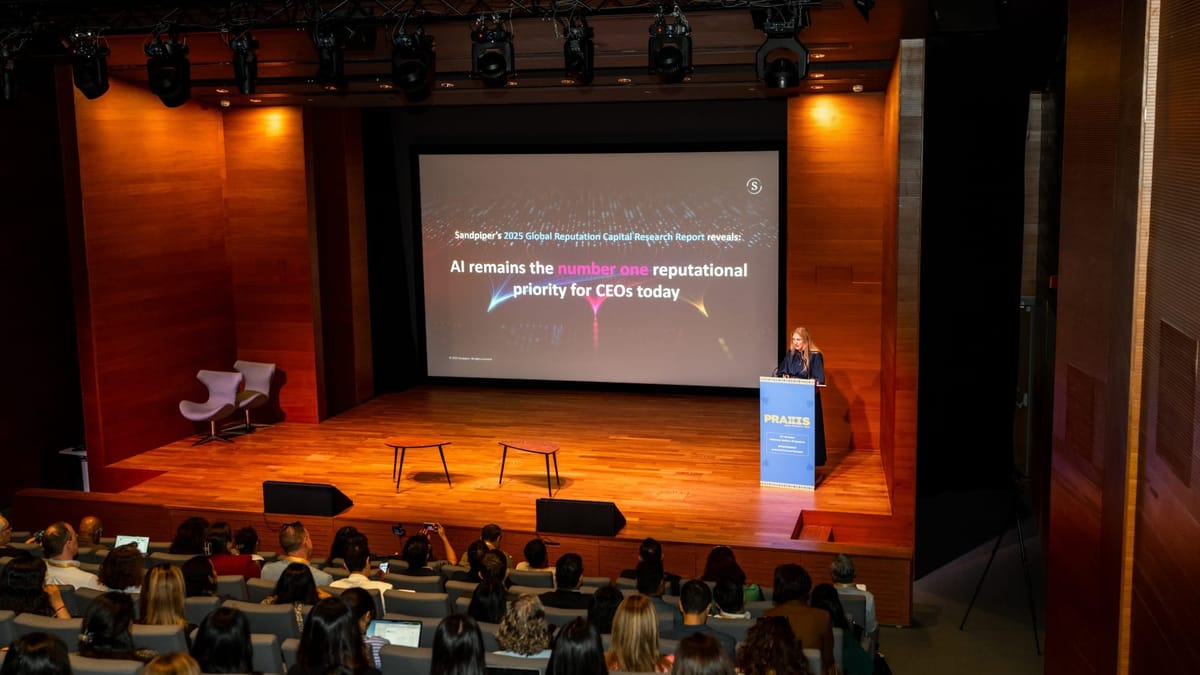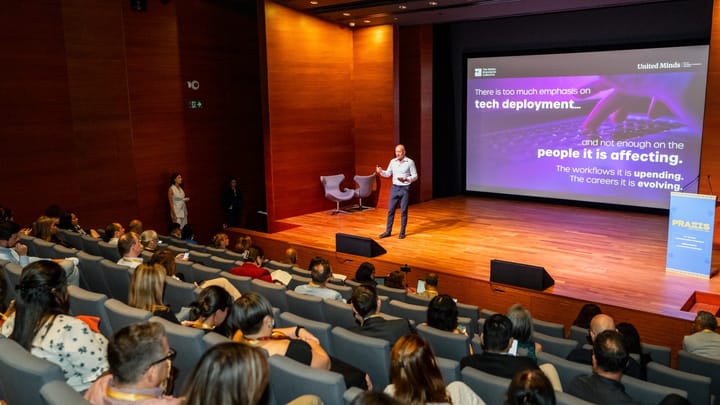PRAXIS A-P: Influence & leadership in the AI era
AI is reshaping how trust is built, demanding new strategies from brands and their leaders.

Artificial intelligence is no longer a distant disruptor. It is actively reshaping how influence is created, distributed, and consumed across Asia Pacific. Tools like ChatGPT and Google’s AI overviews are becoming gatekeepers of information, serving answers directly and bypassing traditional media channels.
What once revolved around mass media and marquee voices has splintered into a fast-moving constellation of micro-communities, niche creators, newsletters and podcasters. Each operates with its own rhythm and rules of engagement. For brands and communicators, staying in tight legacy orbits risks irrelevance. Influence is decentralising faster than most can adapt, and AI is accelerating the shift. In Asia, in mobile-first markets like Singapore and India, younger users are already turning to AI platforms as their primary source of information and inspiration.
So, how does this impact credibility and influence? “Consumers increasingly prefer genuine content over highly polished messages,” said Nitin Mantri, group CEO of Avian WE, in a session on Human & Machine Gatekeepers: Mastering Influence in APAC’s New Constellation, as part of PRAXIS Asia-Pacific in Singapore recently. “In other words, reach no longer necessarily means resonance.”
This shift in credibility-building is especially evident in the focused independent platforms being built by media professionals, who have left established companies to strike out on their own. “These platforms blend trust, personality, and independence,” he added. “Brands have engaged them on both that credibility and the community (they have built).”
This new influence also extends beyond media entrepreneurs to social media creators too, contended Mantri. “Social media influencers are not just entertainers… they are trust proxies,” he said. These creators are more deeply influencing decisions on subjects ranging from beauty products to politics, he added.
In this rapidly changing environment, AvianWE has identified three “north stars” for companies to focus on to build their engagement and credibility.
- Double code content for both humans and machines. Humans consume stories emotionally. Machines scan them logically.
- Start testing and iterating a new media strategy for your brand, incorporating a “full constellation” of personalities and publications shaping trust today
- The third guiding principle is focusing campaigns is “focused engagement” where you find niches and don’t need to “light up every star every time.”
“If your strategy does not flex across humans and machines, personalities and platforms, you will be left out in space,” Mantri explained.
While these tenets may help shape a company's influence and credibility, how do CEOs manage communication in the AI era? This was the topic of a compelling study by Sandpiper Communications. According to the agency’s research corporate leaders, mis and dis information and cyberattacks are the top concerns for organisations.
“Almost everyone we surveyed is concerned about how AI will exacerbate existing issues and compound potential risks for organisations,” said Emma Smith, CEO, Sandpiper Communications. “As cyberattacks become more sophisticated with the help of AI, disinformation becomes harder to detect, discern and supress.”
Organisations face several threats to their reputations, including CEO deepfakes and disinformation campaigns, and they need to respond rapidly. “Crisis comms plans will be an integral plan of digital security strategies, linking tech responses with stakeholder comms,” she added. Communications professionals will also be increasingly integrated with cyber security experts to manage reputational risks from these attacks.
As they make this shift, communications needs to shift from a reactive to proactive approach to guard organisations from these cyber threats. “CEOs will also need to consider AI ethics,” Smith contended. “Communicating the impact of AI not only externally, but internally is becoming important, but is still being overlooked.”
While corporate leaders may be confident in managing the potential reputational risks from the increasing use of AI, they may be underplaying the need for constant vigilance. “With AI we can’t just adapt for the day’s technological changes, we must be prepared for the (challenges of) tomorrow,” she added.
To safeguard their reputation, business leaders must invest in understanding the constantly evolving world of AI, how new technologies can impact their organisations at all levels, and how they can optimise their operations. “But further, it is the upskilling that is key,” she contended. “Beyond the leadership is impacting every level of a business’ ability to deliver to customers, clients and other stakeholders and leaders must ensure they are investing … in those capabilities.”




Comments ()